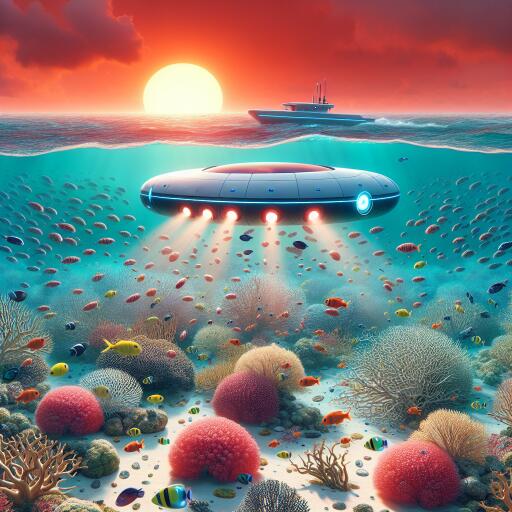
Can AI be the answer to saving the Great Barrier Reef?
The intersection of technology and collaboration may hold the key to the future of coral reef conservation, offering a lifeline to Australia’s most treasured ecological and tourism gem, The Great Barrier Reef. Severely impacted by climate change, scientists are now turning to innovative technologies in an attempt to save these “rainforests of the sea.”
Though coral reefs constitute merely 1% of the world’s ocean area, they are home to approximately 25% of all marine life. Since 2016, severe bleaching events, exacerbated by coastal development and outbreaks of invasive crown-of-thorns starfish, have devastated these essential ecosystems.
Researchers are optimistic that Artificial Intelligence could revolutionize the way we approach coral reef preservation. By merging diverse data from global organizations—including underwater videos, photographs, satellite imagery, text files, and sensor readings—into a comprehensive dashboard, AI can enable real-time monitoring of coral reefs worldwide.
An integrated approach using AI could transform environmental science by offering immediate predictions. Currently, multiple models analyze extensive data sets relating to reef health. These data sets include bleaching levels, disease incidence, juvenile coral density, and reef fish abundance. However, these data are often isolated, making it difficult to visualize the overall health of reefs or conduct expansive, real-time analyses.
The Queensland government acknowledges that the reef faces multiple threats and is investing significantly in its protection. More than $1 billion has been committed since 2015 to safeguard the reef for future generations. Bold actions are being taken to mitigate the impacts of climate change.
By employing AI systems, researchers aim to track the severity and trends of bleaching over time, monitor crown-of-thorns starfish populations, and assess predation risks. Furthermore, AI can detect disease outbreaks, evaluate juvenile coral levels, and analyze reef fish abundance, diversity, length, and biomass.
Centralizing all this data in real-time allows for the generation of predictive models. These models are pivotal for conservation efforts, enabling more timely interventions that could potentially save the reefs.
The rapid deterioration of coral reefs worldwide due to climate change underscores the urgency for immediate action. AI’s role in tracking and predicting environmental changes offers a promising avenue for preserving these vital ecosystems.
With technological advancements and international collaboration, there is hope that future generations will continue to enjoy and benefit from the unique biodiversity supported by coral reefs. As such, the integration of AI into environmental research represents a significant step toward sustaining one of Earth’s most valuable ecosystems.





Leave a Reply